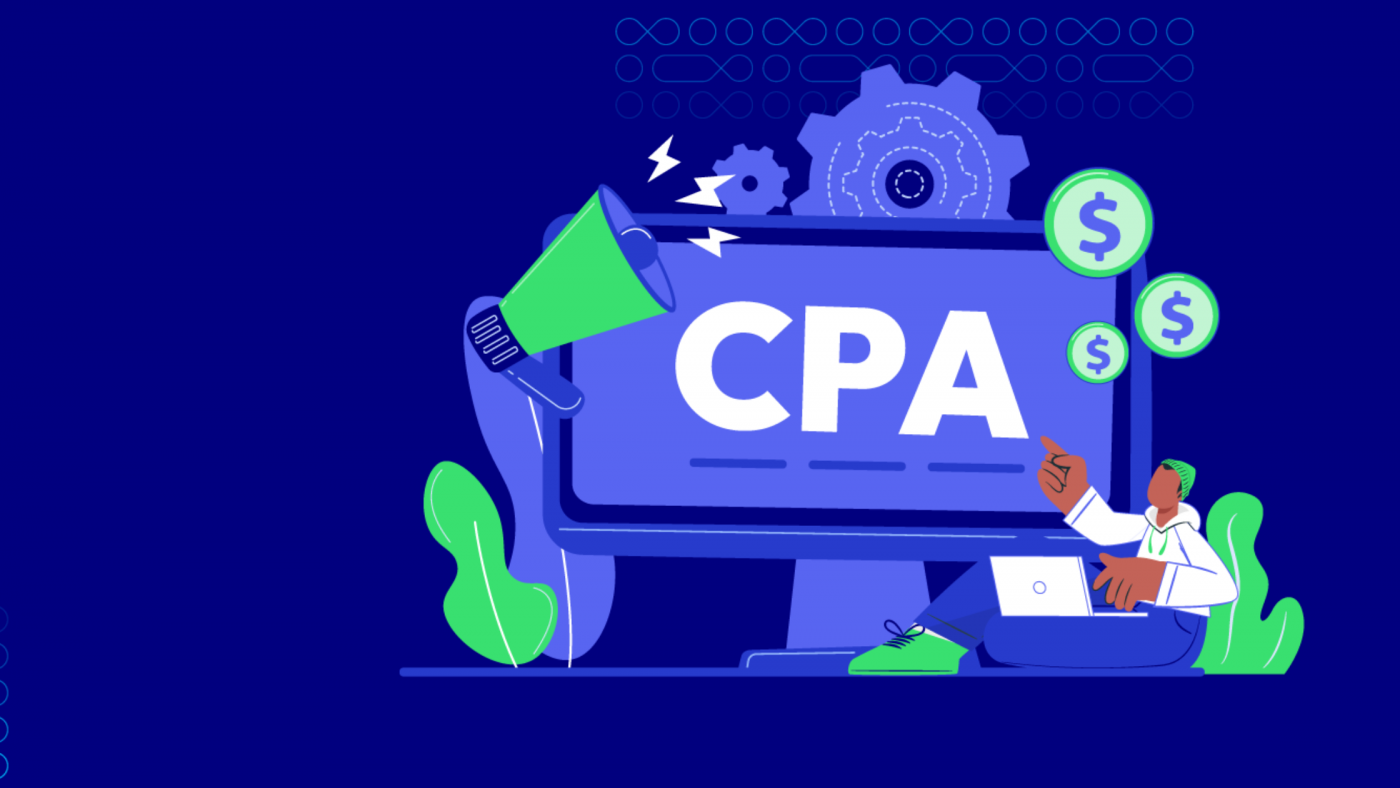Being able to distinguish between various strategies is essential for success in the dynamic sector of digital marketing. As 2023 draws nearer, the distinctions between CPA and affiliate marketing become even more apparent. These two tactics have different properties and serve different purposes, despite the fact that they are sometimes used interchangeably.
1. An explanation of CPA affiliate marketing and its operation
1. The meaning of CPA affiliate marketing

Marketers and advertisers who use CPA affiliate marketing (cost per action in affiliate marketing) as a performance-based marketing tactic are paid when customers finish a certain task. The primary objective of CPA is to produce leads, sign-ups, or other user conversion-related actions. The success of these actions is frequently monitored using techniques similar to measuring CPA.
CPA networks, which provide a network of incentives with high commissions from manufacturers, are also essential to this ecosystem. Sellers, advertisers, and marketers use monitoring CPA through these networks to keep an eye on and improve their campaigns, making sure they are paid for each lead-generated activity.
Knowing the major actors in CPA marketing is crucial to knowing how it operates. CPA affiliate marketing necessitates:
- Publishers and affiliates: They generate traffic to websites and encourage particular actions on them in exchange for a commission.
- Advertiser/Business Partner: By sending traffic to their website through affiliates, brands can increase sales, conversions, or leads.
- CPA Network: Online networks that serve as middlemen in promotions by bringing together advertisers and affiliates.
2. How does it work?
You may select between cost-per-lead (CPL) and cost-per-sale (CPS) offers with CPA marketing since it functions on a cost-per-action basis. The steps involved are as follows:
- Join a CPA affiliate network that offers a range of deals.
- Choose the offer type (CPS or CPL) that you want to advertise.
- Make a landing page to guide visitors.
- When a visitor clicks on your affiliate link, the CPA offer page is displayed to them.
- When a visitor completes one of the designated actions, such as making a purchase, signing up, or completing a form, you get paid.
2. An overview of affiliate marketing and its methodology
1. What is the definition of affiliate marketing?
Promoting another person’s goods or services in exchange for a commission is known as affiliate marketing. Sharing the product’s URL on a website, blog, or social media platform accomplishes this. The end goal is a successful transaction, and the affiliate partner gets paid when visitors make a purchase using that link. Examine the in-depth differences between Amazon FBA and affiliate marketing to determine which approach best suits your company’s objectives.
2. What is the process of affiliate marketing?
- First, the affiliate puts up a link or advertisement for a product or service offered by another person or company on their social media pages or blog.
- After clicking on that particular link or advertisement, a visitor visits the product’s website.
- The guest then makes a purchase.
- The affiliate network records the transaction.
- The owner of the product verifies the purchase.
- The affiliate receives payment for the commission.
Compensation rates in affiliate marketing vary according to the merchant’s website and the offer. Furthermore, as an alternative to a percentage, some affiliate marketing schemes offer a flat compensation per sale.
3. Distinctions Between Affiliate Marketing and CPA Marketing
| CPA Marketing | Affiliate Marketing | |
| Definition | This is an internet marketing strategy in which consumers are compensated for their involvement | You get compensated in accordance with a contract when you work in this area of internet marketing |
| Sales factor | CPA marketing has nothing to do with sales | The quantity of goods or services on offer is what determines it |
| Payment mode | For the deeds that follow from their behavior, they are paid | At the conclusion of each transaction, you will receive a certain quantity of money |
| Payscale | However, CPA marketing offers a lesser return rate. | Affiliate marketing has a very high profit margin. |
| Options | CPA falls under the umbrella of affiliate marketing. | Additional activities are included in the affiliate marketing category. |
| Guidelines | Strict guidelines for beginners | Newcomers are not subject to strict guidelines. |
Furthermore, the distinctions between CPA and affiliate marketing are also evident in the following additional factors:
- Flexibility and Control
Because advertisers give offers in CPA marketing, you have less influence over them because the focus is on efficient advertising. You have more power with affiliate marketing, so you may select products that appeal to your audience to increase conversion rates.
- Types of Offers
You will come across a wide variety of action-oriented offers in CPA marketing, ranging from lead generation and app installs to trial sign-ups. By promoting goods or services for online retailers, affiliate marketing frequently gives you the ability to persuade your audience to buy things via your special affiliate links.
4. Are affiliate marketing and CPA marketing the same or related?
1. Do affiliate marketing and CPA marketing go hand in hand?
While they are different tactics, affiliate marketing and CPA marketing are related. CPA marketing is a type of affiliate marketing. Online marketing techniques like affiliate and CPA marketing let you get paid for referring customers to a company’s products or services. You may want to think about using CPA traffic sources in your affiliate marketing strategy to increase lead generation.
2. Do CPA and affiliate marketing operate in the same manner?
Affiliate marketing and CPA are really comparable. There are situations when affiliate marketing and CPA marketing are used interchangeably.
In CPA marketing, a marketer assists a company owner in achieving a goal in return for payment.
Conversely, affiliate marketing enables publishers or affiliates to profit by endorsing goods or services from another business or advertiser via an affiliate link. Usually, they get paid a commission for increasing sales.
5. Benefits and Drawbacks of Affiliate Marketing vs CPA
1. Advantages
Both the advertiser and the affiliate profit from CPA vs. affiliate marketing; the affiliate receives incentives and more revenue, while the business gains from innovative marketing strategies. Because the affiliate pays for advertising costs, the company only pays for exposure that results in sales, providing a positive return on investment.
2. Disadvantages
The advertising firm sets the parameters of an affiliate marketing program. In the past, companies used to pay for banner ads based on cost per click or cost per mile. However, with technological advancements, the focus has now shifted towards revenue or progress-based royalties. Modern affiliate programs have implemented strict guidelines to prevent fraud, ensuring that links are generated and products or services are presented in content in a secure manner.
Careful planning is necessary for an affiliate marketing program to be effective, particularly if the contract compensates for traffic rather than revenue. It is imperative to acknowledge the possibility of deceit, as unethical affiliates can take advantage of misspelled web addresses or utilize false information. Enforcing affiliate policies and providing proper supervision are essential.
6. Things to Take Into Account While Selecting Between Affiliate Marketing and CPA Marketing
1. Skillset and Expertise
Proficiency in data analysis, optimization, and conversion funnel comprehension are prerequisites for CPA marketing. If you’re good at seeing patterns and trends, this could be your specialty. Conversely, affiliate marketing can be the way to success if you’re an excellent storyteller and thrive at forming bonds with your audience.
2. Long-Term Goals
Think about your long-term marketing objectives. Which method do you prefer: establishing relationships and interacting with your audience via affiliate marketing or using a more data-driven approach (differences between CPA and affiliate marketing)?
3. Level of Control
Because advertisers make the offers, CPA marketing gives you less control over the offers themselves. With affiliate marketing, you have greater control over which goods and services to recommend to your audience based on their interests.
4. Audience and Niche
The distinctions between affiliate marketing and CPA marketing must be taken into account in this case. Like a flexible jack-of-all-trades, CPA marketing appeals to a wide range of sectors and niches with its wide range of offers. On the other hand, affiliate marketing frequently focuses on particular niches or items, which turns you into a targeted expert.
5. Risk Tolerance
In the topic of “CPA marketing vs. affiliate marketing,” assess your level of risk tolerance. Affiliate marketing may provide more consistent revenue through commissions on sales, but CPA marketing may have higher earnings volatility based on particular actions.

